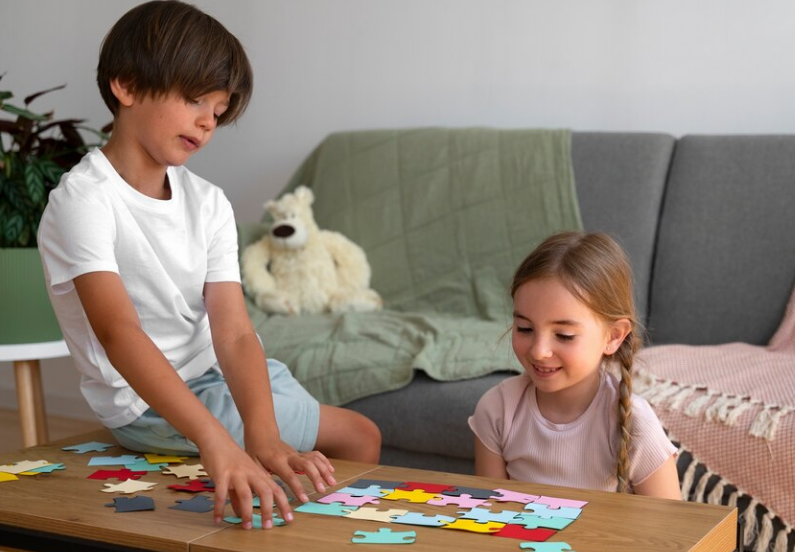Puzzles have long been recognized as a classic childhood activity, but did you know they offer plenty of developmental benefits for children? These brain teaser games are more than just fun; they play a crucial role in shaping young minds. Moreover, they are available for all age groups; you can get puzzles for 5 year olds, teenagers and even puzzles for 2 years olds. You can also get cognitive and educational puzzles. So, in this article, we will explore the unique benefits of puzzling for kids and why you should include them in your child’s playtime.
Develop and Enhance Critical Thinking Skills
Puzzles are miniature mysteries waiting to be solved. They challenge children to think critically and develop problem-solving skills. When faced with an intricate jigsaw puzzle or a mind-boggling Sudoku, kids must analyze, strategize and logically reason their way to a solution. These cognitive exercises lay the foundation for tackling real-life challenges later on.
Improve Concentration
Building concentration is like forging a mental muscle, and puzzles are an excellent workout for that. But how do puzzles help with cognitive development? Child development experts state that kids can typically concentrate for 2-5 minutes times their age. Puzzles can increase their concentration level as they demand sustained attention as children look to match the perfect piece or number, gradually increasing their ability to stay focused and engaged.
Boosts Self-Esteem
Completing the puzzle provides a sense of accomplishment that boosts a child’s self-esteem. When a child fit the last piece into a puzzle or solve a challenging riddle, they experience a rush of pride and confidence. This positive reinforcement encourages them to tackle more complex tasks and helps build a resilient self-image.
For instance, imagine a 5-year-old struggling with a 20-piece animal puzzle. As they gradually put it together, the victorious smile on their face gives a significant self-esteem boost.
Fun Activity For the Day
Puzzles offer endless entertainment, making them an ideal activity for children of all ages. Whether it is a rainy day indoors or a sunny day in the park, puzzles can be enjoyed anywhere. They keep kids engaged and entertained, allowing parents to have some downtime or bond with their children over a shared puzzle-solving adventure.
Spatial Awareness
Spatial awareness is the ability to understand the spatial relationships between objects. Completing and building puzzles, especially those involving shapes and patterns, help children develop this crucial skill. According to studies, spatial play activities like puzzles can build children’s spatial reasoning skills. They learn to visualize how different pieces fit together and create a cohesive whole. This understanding has a far-reaching impact, improving a child’s ability to read maps, follow directions and excel in math and science.
Improved Eye and Hand Coordination
This is one of the top benefits of puzzles for children. Puzzle pieces often require precision when fitting together. This delicate hand-eye coordination challenge helps children refine their motor skills. The subtle movements required to pick up, rotate and place pieces foster dexterity and fine motor control.
A perfect example is a 7-year-old working on a complex jigsaw puzzle. The delicate manipulation of small pieces refines their hand-eye coordination, ultimately contributing to better handwriting and more precise tasks in daily life.
Benefits of Puzzling: Wrap Up
Puzzles are much more than a pastime for kids. There are numerous benefits of puzzling, from developing problem-solving skills and enhancing concentration to boosting self-esteem and promoting spatial awareness. So, the next time you see your child fully concentrated on a puzzle, rest assured they are not just having fun; they are building a brighter future, piece by piece.
